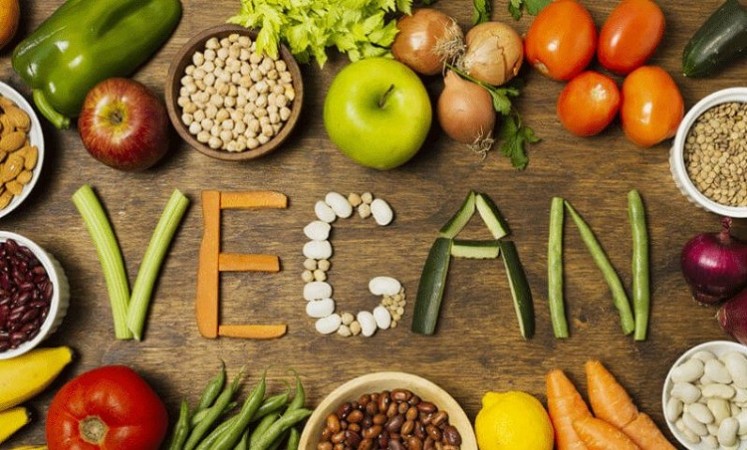
In recent years, the vegan diet has gained significant popularity as people become more conscious of their dietary choices and their impact on health, the environment, and animal welfare. A vegan diet is a plant-based eating pattern that excludes all animal products, including meat, dairy, eggs, and even honey. While there are numerous health benefits associated with a vegan diet, it's essential to be aware of potential side effects and consider whether this dietary approach is right for you. In this article, we will explore what a vegan diet entails, its advantages, disadvantages, and potential side effects.
What is a Vegan Diet?
A vegan diet is a plant-based dietary lifestyle that prioritizes the consumption of foods derived from plants while avoiding all animal products. This includes:
Fruits and vegetables
Legumes (beans, lentils, chickpeas)
Nuts and seeds
Whole grains (brown rice, quinoa, oats)
Plant-based milk alternatives (soy, almond, oat)
Tofu and tempeh
Plant-based meat substitutes
Herbs and spices
Advantages of a Vegan Diet
Health Benefits: One of the primary reasons people adopt a vegan diet is for its potential health benefits. Research suggests that vegans tend to have lower rates of heart disease, high blood pressure, type 2 diabetes, and certain types of cancer. A vegan diet is typically low in saturated fats and cholesterol, and high in fiber and antioxidants, which can promote overall health.
Environmental Impact: Veganism is often motivated by a desire to reduce one's carbon footprint. The production of plant-based foods generally requires fewer natural resources, such as water and land, and generates fewer greenhouse gas emissions compared to animal agriculture.
Animal Welfare: Veganism advocates for the ethical treatment of animals by abstaining from the consumption of animal products. This aligns with the principles of cruelty-free living and supports the welfare of animals.
Weight Management: Many individuals find that a vegan diet can help with weight management because it is naturally lower in calories and saturated fats. The high fiber content can also promote a feeling of fullness, reducing the likelihood of overeating.
Disadvantages of a Vegan Diet
Nutritional Deficiencies: A poorly planned vegan diet may lead to nutritional deficiencies, particularly in vitamin B12, vitamin D, iron, calcium, omega-3 fatty acids, and protein. Vegans should be vigilant about incorporating fortified foods or supplements into their diet to meet their nutritional needs.
Protein Sources: While it is entirely possible to obtain enough protein from plant-based sources, some individuals may struggle to consume an adequate amount, especially if they have high protein requirements. Plant-based protein sources include tofu, tempeh, legumes, nuts, and seeds.
Social Challenges: Eating out or attending social gatherings can sometimes be challenging for vegans, as not all restaurants or hosts may offer vegan-friendly options. This can lead to social discomfort or limited choices.
Time and Preparation: Preparing balanced vegan meals may require more time and effort compared to a typical omnivorous diet. Finding and cooking vegan alternatives to traditional dishes can be time-consuming.
Potential Side Effects of a Vegan Diet
Digestive Issues: Some people may experience digestive discomfort when transitioning to a vegan diet due to increased fiber intake. Gradually incorporating fiber-rich foods can help reduce these issues.
Weight Fluctuations: While some individuals lose weight on a vegan diet, others may experience weight fluctuations if they rely heavily on processed vegan foods that are high in sugars and fats.
Potential Nutritional Imbalances: Without careful planning, vegans may experience deficiencies in certain nutrients. Regular monitoring and supplementation can mitigate these risks.
A vegan diet offers numerous advantages, including potential health benefits, reduced environmental impact, and ethical considerations. However, it is essential to be aware of the potential disadvantages and side effects associated with this dietary lifestyle. To thrive on a vegan diet, individuals should plan their meals carefully, monitor their nutrient intake, and seek guidance from healthcare professionals or registered dietitians when necessary. Ultimately, whether you choose a vegan diet or not, it's crucial to make informed dietary choices that align with your values and promote your overall health and well-being.